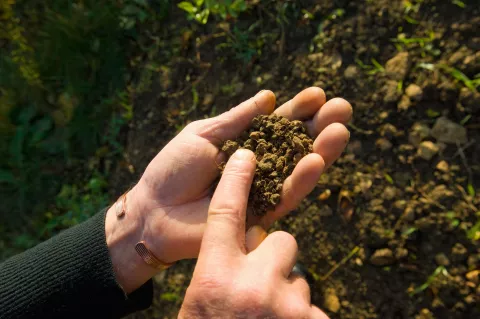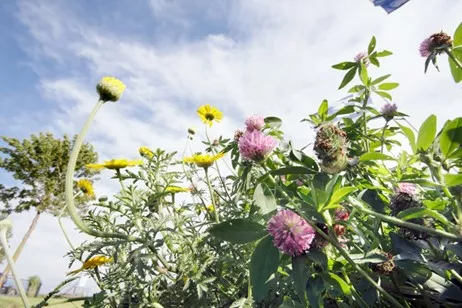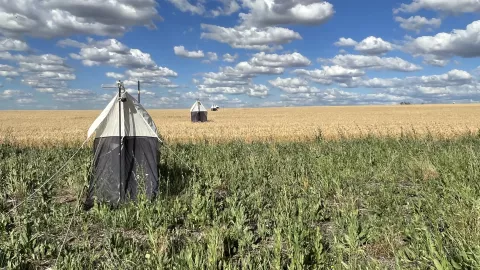Farming relies on biodiversity to maintain a healthy equilibrium with nature and ensure resilient food production.
And yet biodiversity, or the different kinds of life found in an area, is declining at an alarming rate on agricultural land.
Globally, 35% of food production comes from crops that depend on pollinators, such as bees and insects, but intensive agricultural practices have been linked to the loss of these keystone species.
We know biodiversity is important - but to better understand it, and how we can protect it, we need more on-the-ground data.
Working with partners, Syngenta Group is drawing from its digital expertise to spearhead new technologies that measure biodiversity above and below ground.
Because protecting biodiversity is our collective responsibility.
Revolutionizing Soil Health Monitoring
How Edapholog Technology is empowering growers to measure soil health through AI
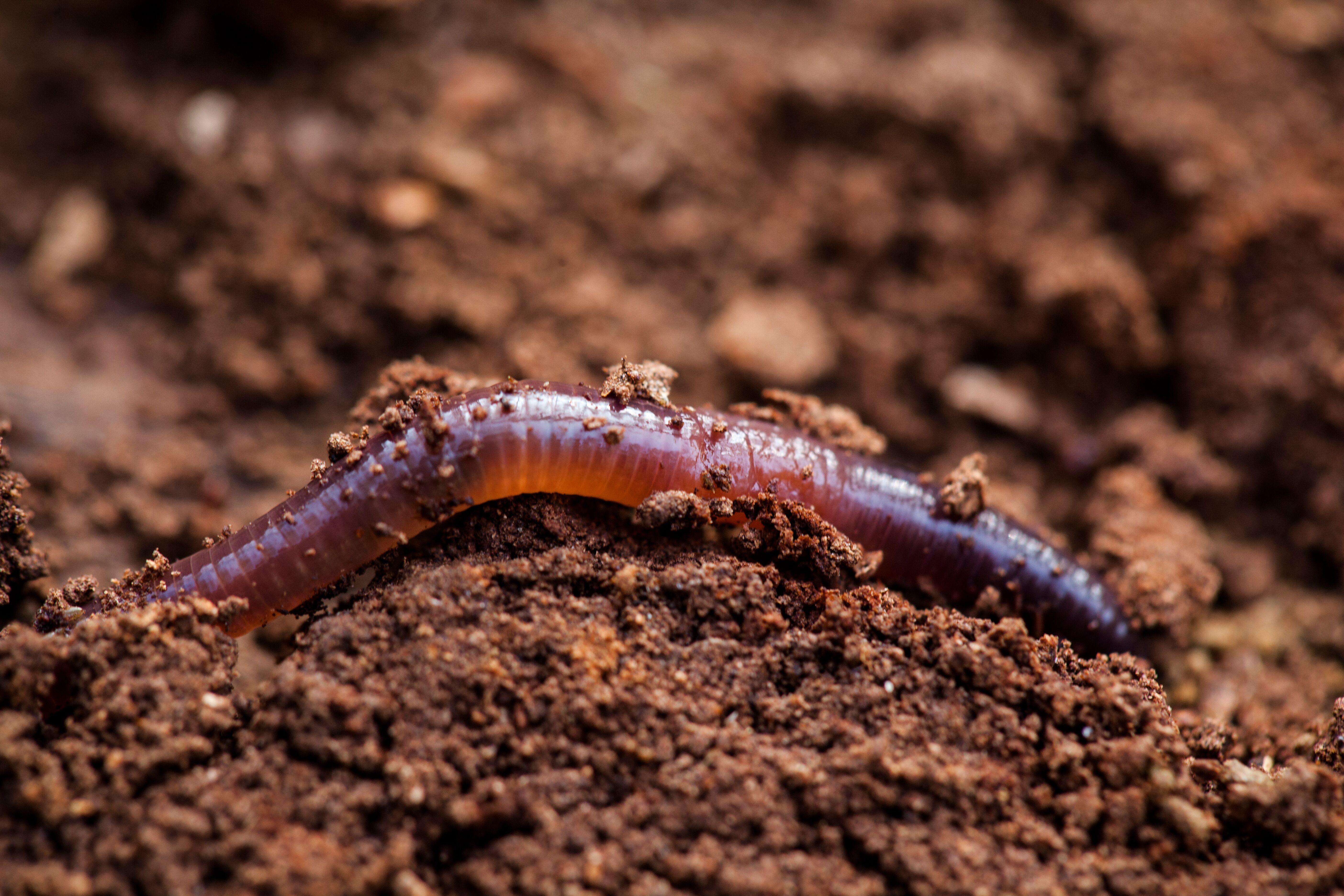
Measuring biodiversity above ground
To understand the impact of our actions on biodiversity, and how we can restore it, we need data: lots of it.
We need clear, verifiable information on what species or insect groups are found on farmland, how agriculture affects their environment and what climate change means for them.
We believe that collecting and analyzing this information across geographies and over time, will give farmers, researchers and policy makers the data they need to make informed decisions to help biodiversity thrive.
Currently, however, biodiversity monitoring is fragmented, with few concerted efforts to share data and no widespread interoperability across the various data-gathering technologies now in use.
The Biodiversity Sensor Project aims to provide a foundation to the global agricultural community in building a prototype system that would be low-cost, solar-powered, using machine-learning algorithms to identify and quantify insect species automatically, autonomously, reliably and at scale.
Initially focusing on bee pollinators, our sensor and trained AI models is the first step in building a continuous stream of global, interconnected biodiversity networks that help safeguard the environment.
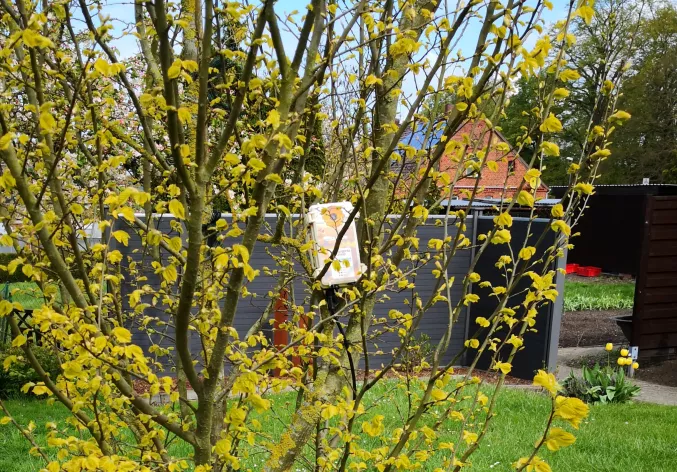
How does the biodiversity sensor work?
Drawing from artificial intelligence (AI) and machine-learning algorithms, the sensor locates and quantifies bee pollinator species in real time.
Designed in partnership with the Indian Institute of Technology Ropar (IIT Ropar), the AI model is trained using data from key bee species from different regions to generate highly precise new prediction models. The training dataset used in this machine learning process was from available open-source biodiversity platforms, i.e. Global Biodiversity Information Facility (GBIF) and iNaturalist, as well as from field data to achieve a robust identification model.
The software can identify and classify the species with an accuracy rate of greater than 90% for four pollinator species, i.e. Apis mellifera, Bombus terrestris, Osmia cornuta, Megachile sp., and with a lower accuracy for twenty-four insect species (Species trained for AI identification are available here).
The R&D prototype device developed for gathering field data is autonomous, but hardy: weatherproof and solar-powered, it is cost-efficient and could work at scale after optimization.
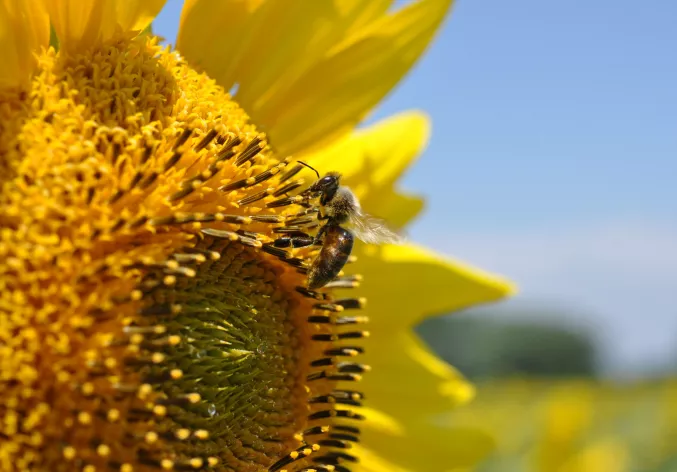
Accelerating the journey
As the global population swells to 10 billion by 2050, the world’s farmers will need to produce significantly more food. At the same time, agricultural landscapes have a key role to play in reversing the decline in biodiversity, which is critical to helping the world sustain a healthy balance with nature and ensuring the resilience of global food production.
As the world’s leading agriculture technology company, Syngenta Group is committed to developing and scaling a series of breakthrough innovations that will allow farmers to feed the world, while respecting the earth — including the enhancement of biodiversity.
To accelerate the journey towards a global 24-7 biodiversity monitoring technology and platform, featuring a centralized data repository that can be shared and tracked, we are committed to openly sharing the outputs of the Biodiversity Sensor Project.
As part of this commitment, we invite you to explore the available information below and to freely develop further to bring science, technology and data together to improve and protect biodiversity around the world.
- Our open-sourced motion detection code is available on GitHub.
- The machine-learning process and annotated image dataset for training our species identification AI model.
- The prototype hardware built by our partner IIT Ropar and its related firmware.
Find Out More About Our Biodiversity Initiatives

